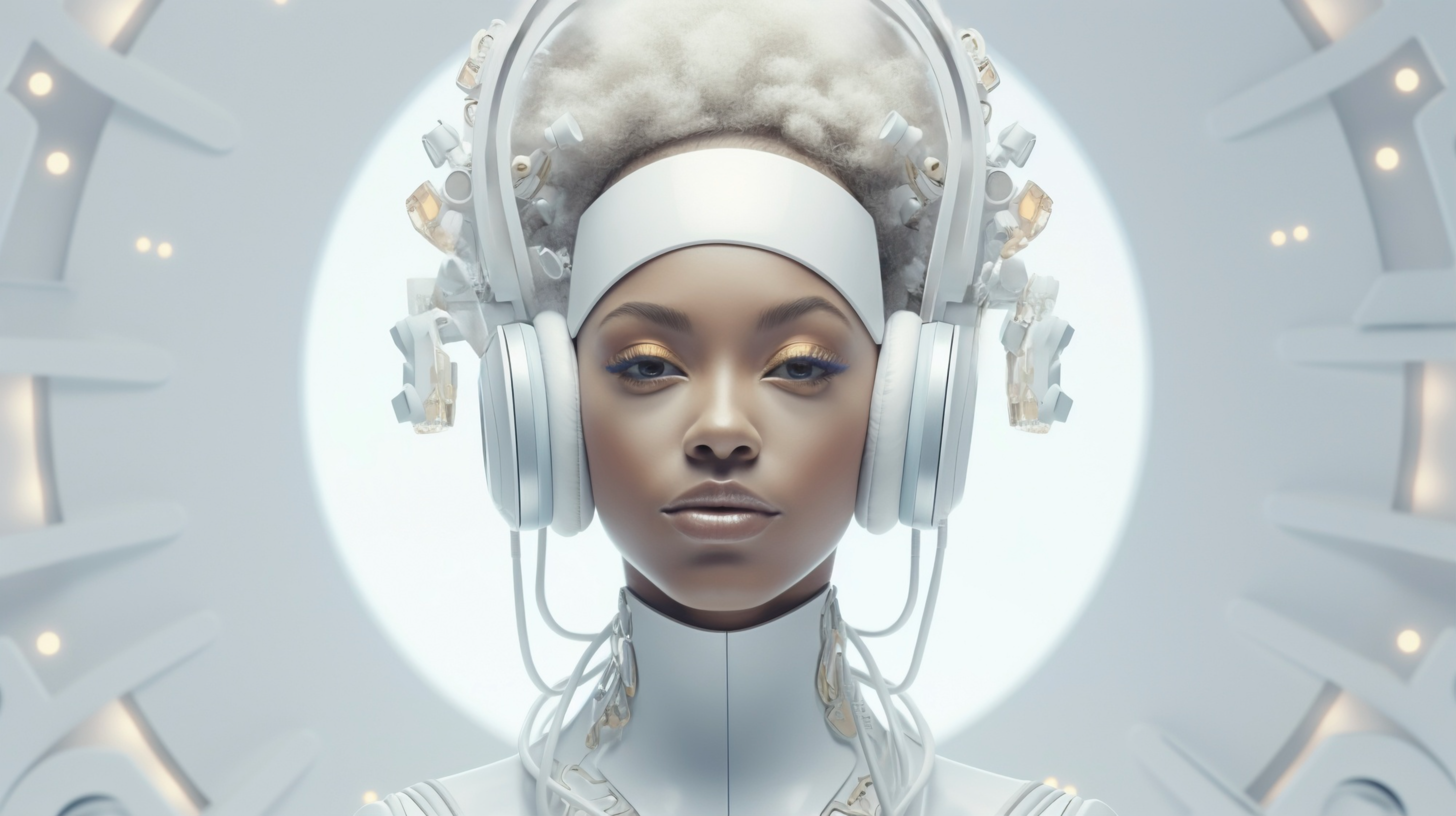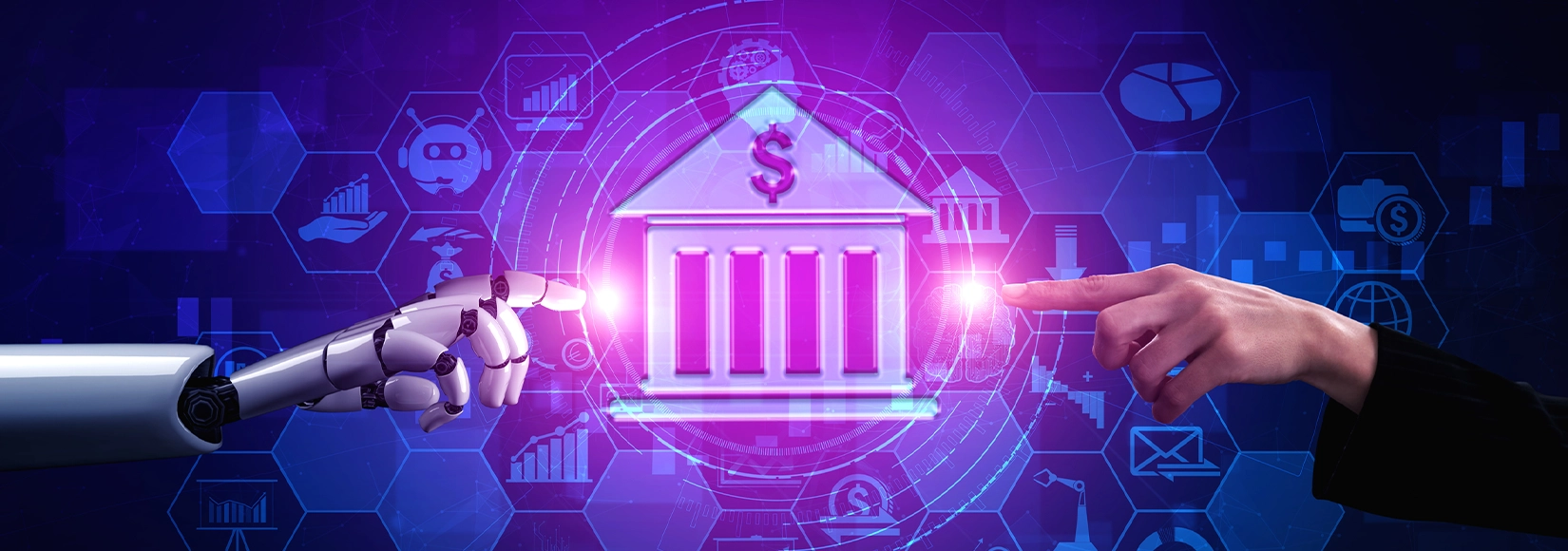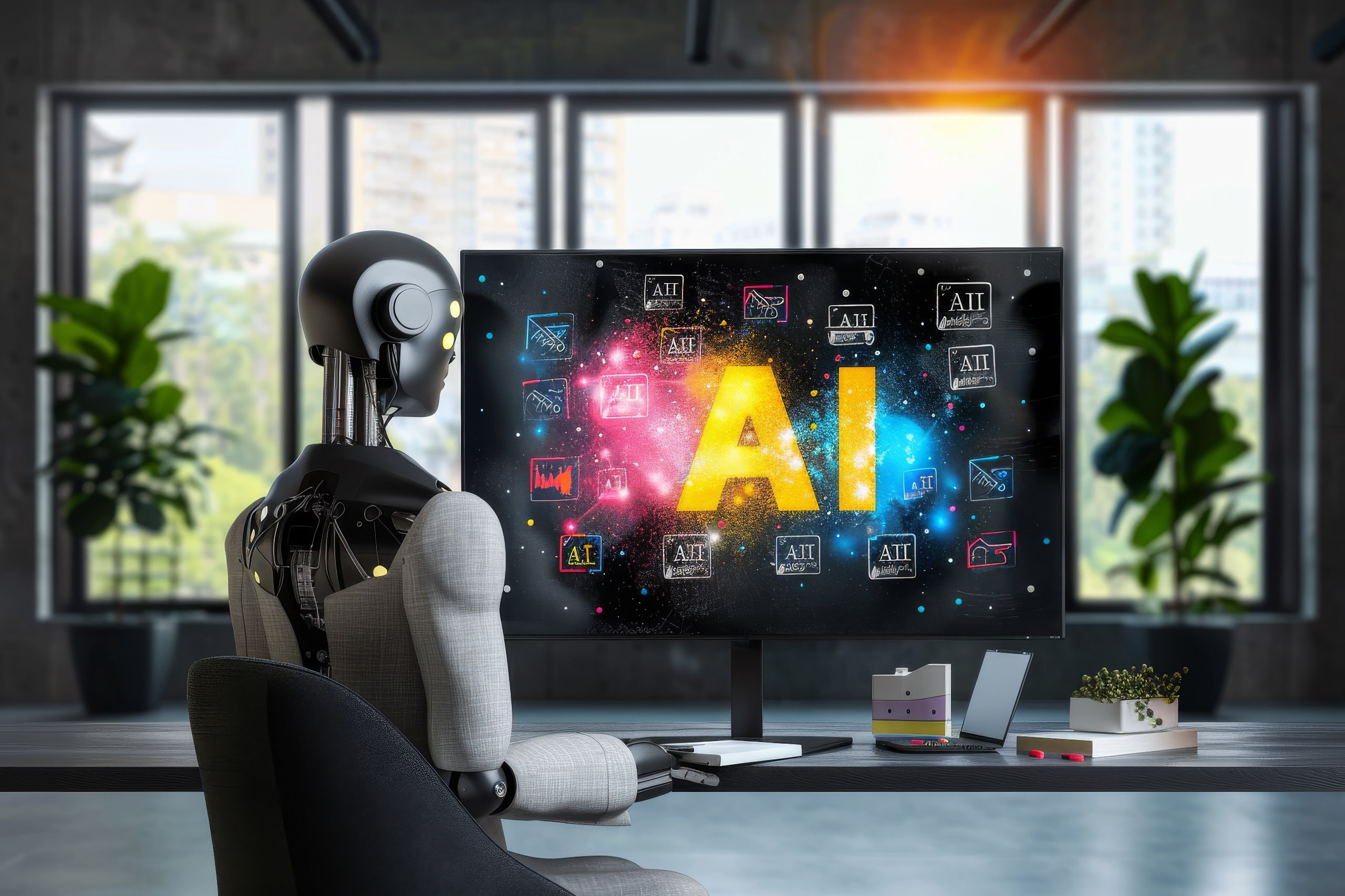The market size of AI in Beauty and Cosmetics has grown rapidly in recent years. Moreover, it is expected to take a boost from $3.24 billion in 2023 to $3.97 billion in 2023 at a CARG (Compound annual growth rate) of 21.5%, as stated by a report on Global Market 2024. In addition, the value is forecasted to grow to $8.1 billion by 2028 at a CARG of 19.5%.
These stats are enough to throw light on the major trends that AI is going to bring to the beauty industry. Advancements in color-matching technology, automation, personalized guidance, conversational bots for better customer support, and automated beauty-based content creations are some examples. Moreover, all this has been supported by COVID-19, which boosted the e-commerce industry and encouraged brands to offer virtual try-on technologies to customers.
In this blog, we will discuss the potential of AI to revolutionize the beauty and cosmetics industry and how it enables beauty brands to amaze customers with extraordinary shopping experiences.
Some Basics of Artificial Intelligence
Artificial Intelligence means incorporating human cognitive abilities into machines. To make this happen, AI algorithms are developed and trained through large, relevant datasets. Similar to AI, there is another term, machine learning, which refers to making the machine learn. Learning can be in two ways: Supervised and Unsupervised. Supervised learning refers to learning through labeled data sets, and unsupervised learning is when an AI model gets trained from unlabeled data sets. It automatically detects the underlying patterns and responds to the user inputs accordingly. For AI and ML algorithms to be accurate, it is pertinent to train them from large-quality datasets.
Generative AI is another leading type of artificial intelligence that generates various types of texts, graphics, and other outcomes. ChatGPT and Midjourney are some of examples. Gen AI has recently gained popularity and is paving new ways for advancements in artificial intelligence.
How AI elevates the beauty game?
The beauty demand of the customers is setting new trends. According to Epsilon, 80% of the customers would prefer buying from brands that offer personalized experiences. Therefore, many beauty brands are leveraging the potential of AI for various purposes like creating products, developing and implementing effective marketing strategies, analytical and predictive tools for better inventory management, supply chain management, and providing tailored experiences to customers.
Hyper-Personalization
Every individual has a different skin type, skin sensitivity, preferences, spending habits, etc. AI models get trained from large data sets of each skin type, and they monitor customer data individually. On the basis of all the gathered data, including what the customer prefers to buy, AI algorithms can produce recommendations of products that best suit the customer’s requirements. This tailored approach is problem-solving for customers and increases company sales by recommending products that customers will likely buy.
Mastering color matching
There are many beauty products like lipsticks, foundations, contour, blush, and highlights that are present in different colors, shades, and textures like matte, glittery, and so on. Different people have different requirements; one person may be finding a dupe of the lipstick of one brand in another, and another person may require the same color of the matte lipstick in a glossy texture. Thus, due to such fluctuating requirements of the public, matching the colors of different products in different brands and textures is a problem that AI solves. As AI systems have learned about all the company’s product details, they can analyze the color and match it with the product base’s customers very quickly and accurately, thereby saving time and increasing accuracy.
Virtual Try-Ons
With the help of computer vision, the artificial intelligence technique that allows AI models to interpret visual inputs, facial recognition features can be developed that enable them to try different shades of their makeup products, different hairstyles, or hair extensions virtually. This feature adds a lot of creativity and flexibility to the customer’s experience and allows them to decide which of the selected options looks better on them. Thus, this feature works like magic in boosting sales.
Fostering Diversity
AI in the beauty and cosmetic industry has enabled businesses to expand their domains to a wider and more diverse audience. With the incorporation of technologies like natural language processing (NLP), the AI model can even understand and respond to different human languages. Apart from this, AI in beauty has helped break human limitations. For example, the Hapta lipstick applicator was built by Loreal in collaboration with Prada, a tool that helps people with mobility challenges in makeup application. Such wonderful discoveries using AI help to serve people irrespective of their age, gender, ability, and ethnicity and set a positive example for society.
Holistic Wellness
Beauty no longer refers to looking better but being better. Therefore, the recent advancements in cosmetics work more on an individual’s holistic well-being than making them look better. Such an approach has also led to dynamic innovations in microbiome technologies. For instance, Unilever partnered with IBM and Eagle Genomics to get insights from microbiome datasets to develop innovative treatments for dry skin.
Metaverse Beauty
Metaverse, the virtual world, is developing rapidly, and it has blurred the lines between real and virtual individuals. This has attracted the top beauty brands to explore its advancing potential. One example of this is Paris Hilton’s Metaverse Halloween party in collaboration with Urban Decay in Roblox, where Rihanna’s Fenty Beauty trademarked its virtual beauty and hair products. Thus, in the metaverse, people can create their avatars, get them dressed, and use cosmetic products.
More Accurate Beauty Solutions
With the help of AI-backed predictions and recommendations, data-driven decisions can be made to prepare cosmetic formulations, recommend products to people, and much more. Moreover, automated recommendations guide people better on which products can suit their needs the best. Thus, AI’s data-driven insights keep the guesswork out of the picture and allow people to take more informed decisions and companies to develop more accurate beauty solutions.
Sustainability
Beauty brands rely heavily on plant products, which hinders their sustainable approach. With the help of AI, processing extensive genetic and protein data has become easier and quicker, and underlying patterns or similarities between the patterns can be determined efficiently to develop eco-friendly formulations, which would be impossible to attain manually. In addition, by using AI for inventory management, stock can be managed well, which avoids the wastage of any products. Therefore AI helps in developing eco-friendly products in sustainable ways and helps in saving the environment.
Thus, AI in Beauty and Cosmetics has technologized makeup expression for people and has transformed the concept of looking better into being better.
Chatbots for the Beauty Industry
As said above, in recent times, Gen-AI has led the world of AI and has transformed the way human beings interact with technology. Let’s now discuss how the most commonly used type of Gen AI i.e., Chatbots, can be useful for the beauty and cosmetic domain.
Below are the use cases of Chatbots in the beauty industry.
-
- Skin Care Routine Guidance
Virtual beauty assistants or conversational bots can take input from people regarding their skin types, preferences, and problems they face and prepare personalized skincare routines for individuals while keeping other factors like climate and concerns in consideration. Thus, AI in beauty care assists people in paving a healthy way to beauty.
-
- Personalized Makeup Suggestions
Makeup has a broad range of products like foundation, contour, highlighter, face powder, eyeliner, mascara, lipsticks, blush, color correctors, and whatnot. All these products have different shades of textures. Moreover, all these products are used by people of different skin types and concerns. Therefore, out of this large pool of makeup products and skin types, choosing products that rightly fit the needs of the customers is a challenge. Thus, AI helps in tackling this situation and recommends the right products for the right skin type in the right order tailored to what the customer is looking for.
-
- Beauty Tips & How-Tos
For any kind of beauty tips, be it herbal, chemical, or ayurvedic, one can always talk to the beauty chatbot and get personalized beauty tips and tutorials for any kind of concerns they are having. The step-by-step guidance provided by the chatbot makes the beauty solutions easily accessible to customers.
-
- Detailed Product Insights & Reviews
Different formulations can have different reactions on different skin types. Therefore, most people would always look for reviews and product insights before making a purchase or applying a skincare or makeup product. Beauty chatbots have emerged as a valuable tool in this context, allowing users to inquire directly about product details and share information about their skin type. These chatbots can then provide precise, customized advice on whether a product will likely be a good fit for the user. If a product isn’t suitable, the chatbot can suggest alternatives that might be a better match.
-
- Problem-Solving Solutions
Most of the people always have issues related to skincare and makeup. AI conversational bots offer them all-time assistance and help them resolve their queries quickly. For example, suppose somebody gets an allergic reaction due to a face serum. In that case, the conversational bot can guide and provide quick relief to the person, even at an hour when any dermatologist or medical service might not be available. However, the solutions it will give will not be medically prescribed, and the person will still need to visit a doctor if the condition is severe.
Top Brands using AI for beauty care
AI is revolutionizing various sectors, including healthcare, education, hotel management, administration, supply chain, logistics, manufacturing, and more. Therefore, impressed by its transforming potential, many top-notch beauty brands adopted AI-backed beauty solutions to enhance their customer experience and boost the quality and accuracy of beauty product formulations. Let’s discuss some of them below:
Virtual Assistant by Sephora USA
Sephora has been implementing AI technologies to improve their customer shopping experience since 2013. Today, Sephora offers a virtual fitting feature for applying beauty products on its website and mobile application. In addition to their product catalog, their customers get assistance through AI-backed tutorials and step-by-step instructions on product applications. Also, the users get access to features like Compare Me and Shake It Up, which enable them to try different styles and beauty products.
MAC Cosmetics
MAC Cosmetics has innovated the shopping experience by merging digital technology with the traditional in-store journey. The introduction of virtual try-ons has become quite convenient for the brand and customers, allowing frictionless interaction at every touchpoint. By using a personalized QR code, customers can have their every interaction with the brand meticulously tracked – from browsing and bookmarking products to pinpointing their preferred shades and overall shopping behavior. Next to the cosmetic displays, shoppers are invited to experiment with products through a tablet using augmented reality (AR) technology. Even more impressively, simply picking up a product triggers a smart app to recognize the item for a virtual try-on. This approach to sales has notably boosted engagement by 200% within just the first month.
L’Oreal
Loreal has proudly and confidently declared its interest in becoming the leading beauty tech. The brand is not only working to enhance its shopping experience but also working on developing tools and software for technologizing beauty. One of their great inventions is Hapta, which is the first computerized makeup applicator tool that assists people with mobility challenges to easily apply makeup products like lipsticks, mascara, and so on. This great invention has motivated the beauty industry to take a step forward in technology and thrown light on the idea of how useful AI can be in beauty if used properly.
Trends of the future
Now that AI has started printing its footsteps in the industry of cosmetics let us take a look into what the future of AI in beauty care looks like:
AI Influenced Retail Experiences
The future of AI in beauty will be filled with advanced technologies like augmented reality mirrors equipped with facial recognition to allow customers to try makeup virtually and provide them with personalized recommendations. Some companies would even provide customers with AR headsets to help them decide between fragrances.
Advanced Skin Analysis
With the help of AI-backed data-driven insights and recommendations, advancements would also be coming for better skin assessments. Many apps can be prepared to track changes in the skin according to climate change, and hence, skin care routines will be developed accordingly. It is surprising that AI can make all this happen through the usual smartphone cameras.
AI-Crafted Beauty Products
AI-powered recommendations, insights, and analysis can help in making the formulations better. As AI can process huge amounts of customer reviews and feedback, it can produce insights into what customers are expecting from beauty brands and enable the R&D and manufacturing teams to develop unusual beauty products to meet the demands of customers. Moreover, by using AI, many beauty brands that will provide tailored beauty solutions for individuals with defined concerns can be seen coming up.
Hence, AI can fully transform the operations and experiences of customers in the beauty industry. As people move ahead to more advancements in AI in beauty care, government authorities, and top beauty brands must consider the concerns of privacy, safety, security, transparency, and fairness and promote the responsible use of AI for the welfare of people.
For the Development of cutting-edge AI solutions for your business. Join hands with Build Future AI, The best AI Development, Integration, and Consulting Company.
Reach out to us via email: business@buildfuture.ai to know more.




